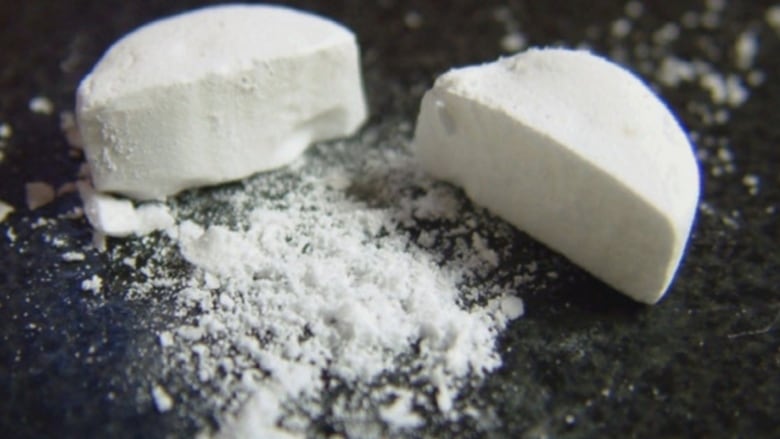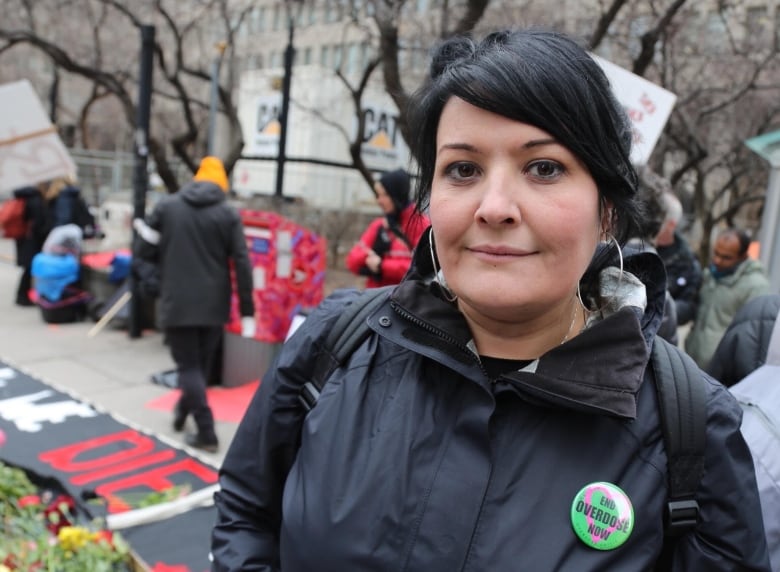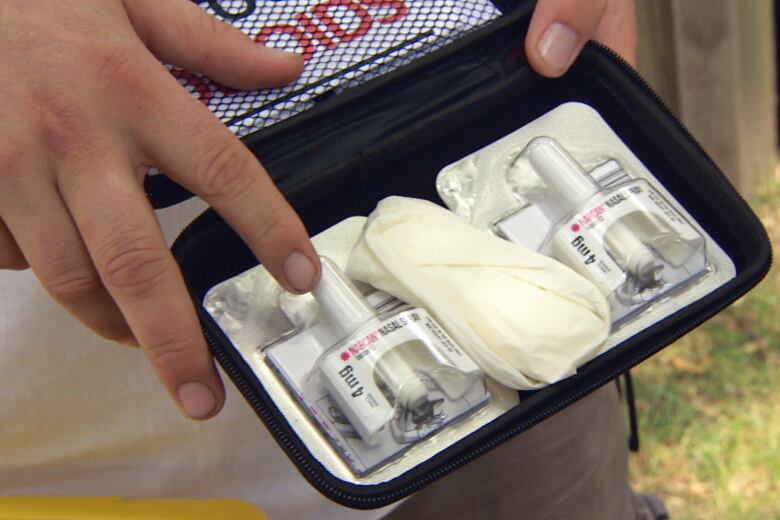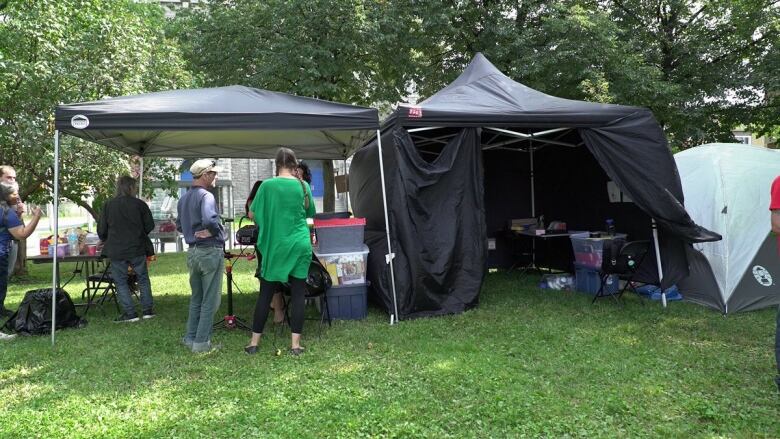Harm reduction workers call on Ontario to declare emergency over opioid crisis
Letter signed by over 700 has been given to Wynne and it calls spike in overdose deaths 'disturbing'

More than 700 health care workers have called on Ontario Premier Kathleen Wynne in an open letter to declare a provincial emergency due to a "disturbing" increase in overdose deaths related to opioid use in the province in recent months.
Among those who signed the letter include harm reduction workers, nurses, doctors and academics from 59 towns and cities in Ontario. The signatories come from Southern and Northern Ontario.
The letter washand-delivered to Wynneat Queen's Parkand comes as the premier met with physicians, clinicians and harm reduction workers on Monday.
"For months, front-line harm reduction workers and healthcare professionals have noted a disturbing and sustained increase in non-fatal and fatal overdoses amongst people who use drugs," the letter reads.
"Our healthcare and public health systems have been severely limited in their ability to adequately respond as a result of limited resources and poor and outdated data that have prevented swift, safe and effective program developments for this emergency.

After the opioid meetingMonday, Wynnesaid additionalsupports will be announcedin the coming days.
"We agreed that what's happening in Ontario is a public health crisis,"shesaid in a statement. "That's why I strongly reaffirmed our government's commitment to combat this crisis with additional resources, and reassured the group that this is a top priority for me."
The letter wasaddressed toWynne, Ontario Health Minister Eric Hoskins, federal Health Minister Jane Philpott, Ontario coroner Dirk Huyer, David Williams, Ontario's chief medical health officer and provincial overdose co-ordinator, Peter Donnelly, president of Public Health Ontario and Ontario Lt.-Gov. Elizabeth Dowdeswell.
According to the letter, the Ontario government could declare an emergency under the Emergency Management and Civil Protection Act. It sayssuch a move would enable harm reduction workers, public health, primary care, addictions medicine, psychiatry and internal medicine teams to develop "safe, effective and equitable" responses to the rising numbers of deaths.
A declaration of emergency would also allow the provinceto issue emergency orders providingincreases infunding for harm reduction workers, establishingmore overdose prevention sites quickly, and creating "timely" comprehensive opioidprograms.

Hoskins, when asked for comment, said the province is awarethat more needs to be done to reduce the number of overdose deaths from opioid use. He saidthe government will consider providing more fundingbut declined to say how much and when.
"Our government will continue to look for ways to strengthen our strategy, including announcing significant new investments in the coming days to offer the support communities and families struggling with opioid use disorder need," hesaid in a statement on Monday.
Hoskins saidthe government will also distribute 6,500 morenaxolonekits per month through community agencies. Naxolone is medication used to block the effects of opioids.
According to a news release, the latest data available for Ontario showsthat two people died of opioid-related overdoses each day in mid-2016.

A report published in Aprilby the Ontario Drug Policy Research Network, for example, says the rate of opioid-related deaths in the province has increased dramaticallyover the last 25 years, skyrocketingto 734 in 2015 from 144 in 1991.
"The scale of the overdose epidemic is large with the potential to increase dramatically in a short time. This situation requires immediate action," the letter says.
The letter says the existing health care system in Ontariois"inadequately resourced" to respond effectively to the opioidcrisis. For example, it says health care agencies do not have the funding to recruit new harm reduction workers.
Addiction medicine specialist and family physician Dr. Alexander Caudarellasaid in the news release that a declaration of emergency would send a message to harm reduction workers that the province that they are not "alone" and to drug users and families that their lives have value.

In April 2016, the B.C. government declared a public health emergency, under its Public Health Act,in response to the rising numbers of drug overdoses and deaths. The government said on the declaration's first anniversary that "unprecedented" numbers of overdoses and deaths continued to occur.
A total of 935 people died of apparent illegal drug overdoses in B.C. last year, according to the BC Coroners Service.
Ontario can learn from B.C., worker says
Zoe Dodd, a harm reduction worker in Toronto, said in the news release that a declaration in Ontario would have public policy implications.
"An emergency declaration would send an important message to police departments that responding to the overdose crisis using clinical and public health interventions is more much important than arresting people who use drugs," she said.
My Patients, increasingly terrified by fentanyl feel they could be the next to die. One said goodbye "just in case"
—@acaudarellaDodd also told The Canadian Press that governments need to shoulder much more of the burden for battling the crisis.
"We're leaving the responsibility of this crisis to people's families and their friends and people who use drugs to save each other's lives and it is not OK," she said.
"It is hard to manage what's going on and we are trying our best but it is time that the government step up and do something. We cannot afford to lose any more people and we are losing people at an alarming rate."
With files from The Canadian Press












_(720p).jpg)


 OFFICIAL HD MUSIC VIDEO.jpg)
.jpg)



























































































